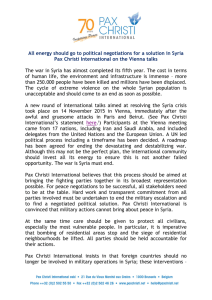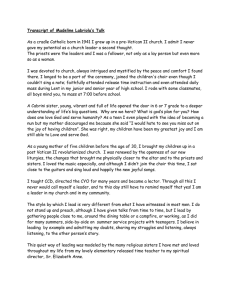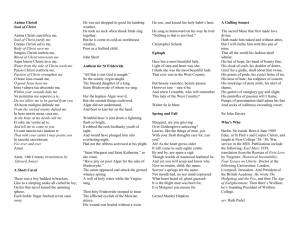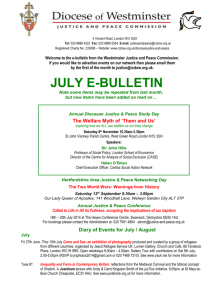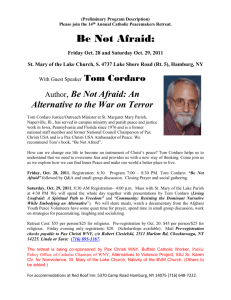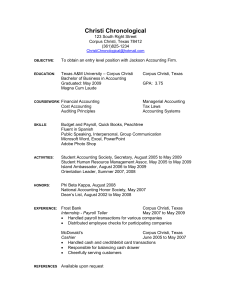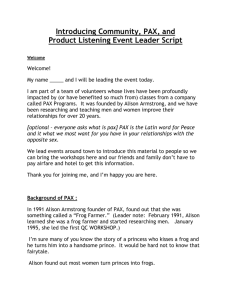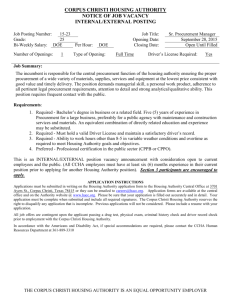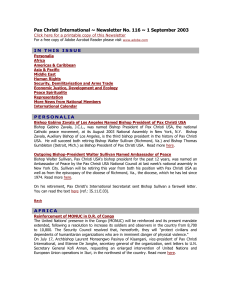Read - Pax Christi
advertisement
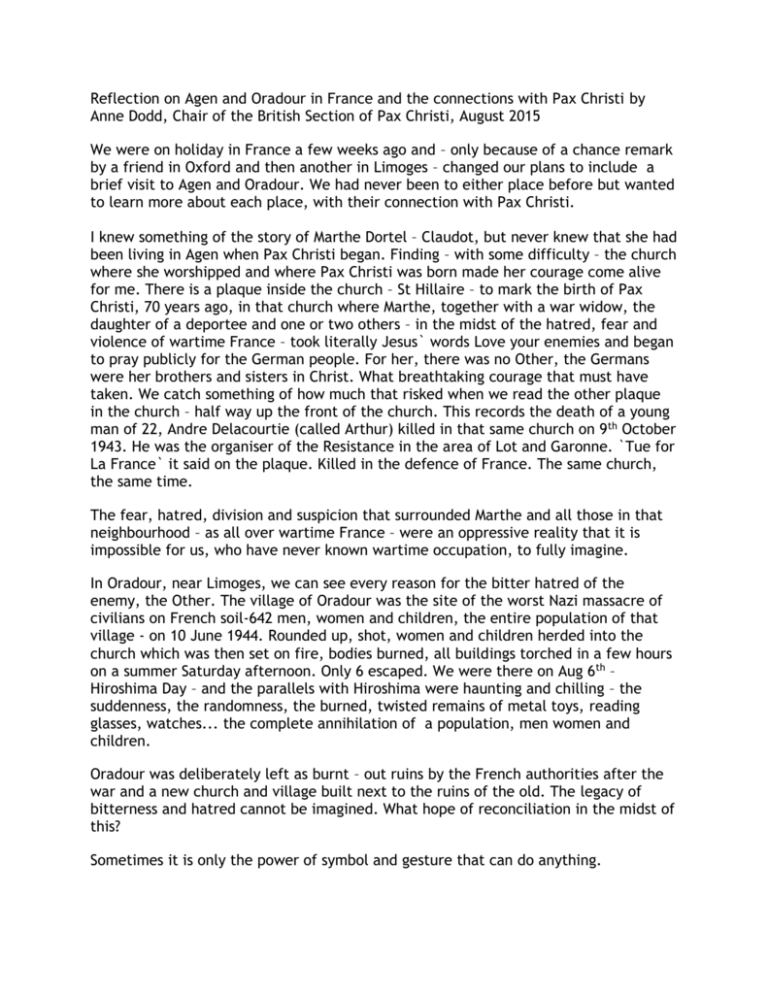
Reflection on Agen and Oradour in France and the connections with Pax Christi by Anne Dodd, Chair of the British Section of Pax Christi, August 2015 We were on holiday in France a few weeks ago and – only because of a chance remark by a friend in Oxford and then another in Limoges – changed our plans to include a brief visit to Agen and Oradour. We had never been to either place before but wanted to learn more about each place, with their connection with Pax Christi. I knew something of the story of Marthe Dortel – Claudot, but never knew that she had been living in Agen when Pax Christi began. Finding – with some difficulty – the church where she worshipped and where Pax Christi was born made her courage come alive for me. There is a plaque inside the church – St Hillaire – to mark the birth of Pax Christi, 70 years ago, in that church where Marthe, together with a war widow, the daughter of a deportee and one or two others – in the midst of the hatred, fear and violence of wartime France – took literally Jesus` words Love your enemies and began to pray publicly for the German people. For her, there was no Other, the Germans were her brothers and sisters in Christ. What breathtaking courage that must have taken. We catch something of how much that risked when we read the other plaque in the church – half way up the front of the church. This records the death of a young man of 22, Andre Delacourtie (called Arthur) killed in that same church on 9 th October 1943. He was the organiser of the Resistance in the area of Lot and Garonne. `Tue for La France` it said on the plaque. Killed in the defence of France. The same church, the same time. The fear, hatred, division and suspicion that surrounded Marthe and all those in that neighbourhood – as all over wartime France – were an oppressive reality that it is impossible for us, who have never known wartime occupation, to fully imagine. In Oradour, near Limoges, we can see every reason for the bitter hatred of the enemy, the Other. The village of Oradour was the site of the worst Nazi massacre of civilians on French soil-642 men, women and children, the entire population of that village - on 10 June 1944. Rounded up, shot, women and children herded into the church which was then set on fire, bodies burned, all buildings torched in a few hours on a summer Saturday afternoon. Only 6 escaped. We were there on Aug 6th – Hiroshima Day – and the parallels with Hiroshima were haunting and chilling – the suddenness, the randomness, the burned, twisted remains of metal toys, reading glasses, watches... the complete annihilation of a population, men women and children. Oradour was deliberately left as burnt – out ruins by the French authorities after the war and a new church and village built next to the ruins of the old. The legacy of bitterness and hatred cannot be imagined. What hope of reconciliation in the midst of this? Sometimes it is only the power of symbol and gesture that can do anything. The German section of Pax Christi came to Oradour after the War and offered a chalice to the new church – a symbol that in Christ there is no Other. The Eucharist is the symbol and reality of that oneness, no Jew, no Gentile, no French, no German. We are One in Christ and can be no other. It was that Oradour Chalice that was used in a moving open-air Mass, during the Pax Christi International Assembly in Strasbourg in 2010, part of a pilgrimage of reconciliation to the Peace Cross of Bṻhl in Germany. The Buhl Kreuz is a monument to French – German reconciliation after WW2. These events at Agen and Oradour were 70 years ago. There`s always the danger in looking back and seeing events in the past as a `museum of remembrance` instead of a challenge to us in the new and here. In the homily at the opening Mass at the Strasbourg Assembly, 5 years ago we were all reminded of this. It was a homily about Jesus’ final words to his disciples, his followers. This is an extract from that homily. “It is you who are the witnesses” This was the final message of Christ to his disciples. He did not say: “When I`m gone, do this, do not do that.” No, his words were: you are my witnesses, the work for which I came to join humankind. You are responsible to ensure that it remains alive, and be a constant source of renewal and transformation. In his humble farewell speech, Jesus teaches us something important: the Holy Spirit places the apostles within the heart of its mission. They are not the guardians of a museum of remembrance they are responsible for the relevance of the message of Christ for today In our turn we are called upon, not only to make known but also to make effective the love and peace of Christ. In this context, the word “witness” bears a great strength and great resonance. It is not only about telling what we saw, but to carry in ourselves this event. We must be accountable, absorb it in ourselves, transform it to be able to transmit it not simply as information but as an urgent request, as a call that challenges. If we want to be witnesses of peace, that is to say, messengers and builders of peace, we must first be ourselves, men and women of peace, inhabited by a genuine sense of justice, a spirit of charity and of reconciliation.
